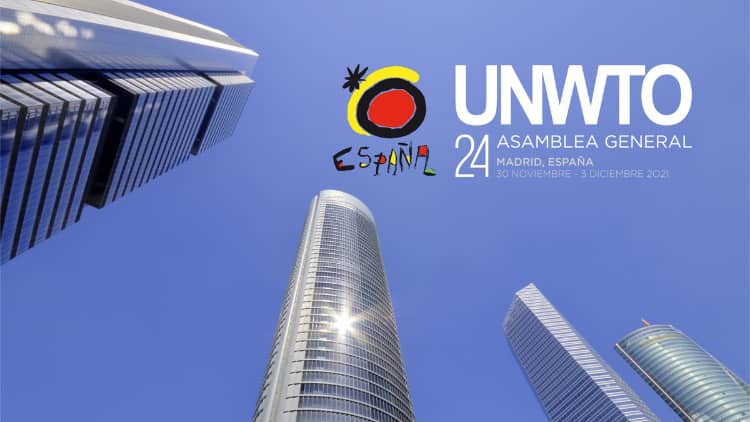The Diplomat
One thousand delegates, representing 135 countries from around the world, have been in Madrid since yesterday to discuss the future of tourism in the post-pandemic era at the 24th General Assembly of the World Tourism Organization (UNWTO).
Eighty-four ministers and deputy ministers of tourism are attending the event, along with representatives of international organisations, private sector leaders and civil society, where innovation, education, rural tourism development and investment will be high on the agenda.
The UNWTO Secretariat General will present a comprehensive update of its programme of work, which aims to restart, lead the recovery and be a central pillar of sustainable development and climate action.
In his report to the Assembly, Secretary-General Zurab Pololikashvili will describe how UNWTO led the global tourism response to the unprecedented crisis of COVID-19, in particular by securing vital support for jobs and businesses and ensuring harmonised standards and protocols to restore confidence in travel. The report will also set out plans for a more inclusive and resilient future, including the revision of UNWTO’s Agenda 2030 for Africa and the first International Code for the Protection of Tourists, also designed to restore trust in travel.
A special message from UN Secretary-General António Guterres will be screened during the meeting, which will be attended by Spanish Prime Minister Pedro Sánchez.
The organisation will launch its new ‘Digital Futures for SMEs‘ initiative, designed to help small tourism businesses reap the benefits of innovation.
The UNWTO Programme and Budget Committees will meet to underline the Secretariat’s commitment to transparency. Members will also be asked to confirm the appointment of Secretary-General Pololikashvili for a second term, following the recommendation of the UNWTO Executive Council held earlier this year. Members will also vote on the themes for the 2022 and 2023 World Tourism Day celebrations, and the host country for the 25th General Assembly in 2023.
The winners of the first edition of UNWTO’s “Best Tourism Villages by UNWTO” initiative will also be announced, recognising the best examples of rural destinations embracing tourism as a pillar of growth and opportunity, while the UNWTO Students League 2021 will celebrate the future of the sector.
During the plenary session of the Assembly, the revised legal framework for Affiliate Members is also expected to be approved, with the intention of promoting UNWTO’s transition towards a more agile, dynamic and responsive organisation.
Executive Council approves major initiatives
Prior to the official opening of the General Assembly, UNWTO yesterday convened its Executive Council for its 114th session. The Council, which acts as the governing board of UNWTO, heard Secretary-General Pololikashvili present his report on the work accomplished since the 113th session, also held in Madrid earlier this year.
Members of the Executive Council agreed on the implementation of the General Programme of Work for 2020-2021 and for 2022-2023. Members also endorsed several key UNWTO initiatives, in particular the UNWTO Recommendations on Tourism for Rural Development, the Best Tourism Villages project and the Global Plastics for Tourism Initiative.
Furthermore, the UNWTO Committees on Tourism and Sustainability, Tourism and Competitiveness and Tourism Education Online brought together experts to explore ways to advance the Organization’s Programme of Work around key priority areas.
The Secretary-General thanked the Spanish government for agreeing “in difficult circumstances” to host the event, after Morocco was forced to decline to host it due to public health considerations.
For the Minister of Industry, Trade and Tourism, Reyes Maroto, “the holding of this international event will strengthen Spain’s leadership in world tourism and Madrid’s position as the headquarters of the UNWTO”. Maroto added that “Spain will share at this event its experience in the vaccination process and in the implementation of the Covid Certificate, which is allowing our country to be considered a safe destination”.







